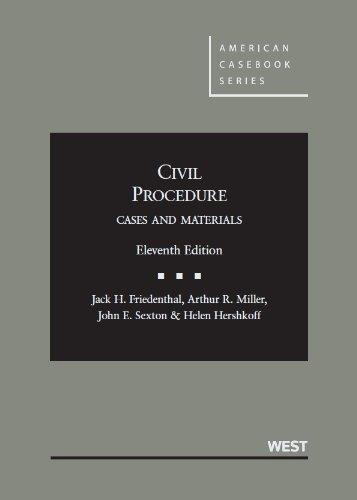2. [H]is * * * bill against William Warner, * * * in the custody of the...
Question:
2. “[H]is * * * bill against William Warner, * * * in the custody of the marshal, & c.”
Common Pleas was supposed to have exclusive jurisdiction over actions of debt, such as Veale v. Warner. But the judges and lawyers of each common-law court zealously sought to expand the jurisdiction of their tribunal, and Veale v. Warner illustrates one method by which King’s Bench accomplished this. Not all common-law proceedings were commenced by writ; to an undefined extent each court could proceed on a bill, which was a complaint addressed directly to the court. See 2 Holdsworth, A History of English Law 339 (3d ed. 1923). One instance in which a court clearly could proceed on a bill was an action against one of the court’s officers or a person within its custody, and such a bill might be brought on a cause of action that ordinarily was not within the jurisdiction of the court. Thus, a plaintiff who desired to bring an action of debt in King’s Bench would first charge defendant with trespass, and by a “bill of Middlesex” that court would order the sheriff of Middlesex to arrest defendant and deliver him to the custody of the marshal of the Marshalsea the court’s prison; once defendant was within the custody of King’s Bench, plaintiff could proceed against him by bill in the action of506debt. Predictably, the arrest and commitment eventually became wholly fictitious, but defendant was not permitted to challenge the allegation that they had occurred. A similar device used to expand the jurisdiction of Exchequer was the writ of quo minus, by which a debtor to the crown could bring suit in that court on the theory that anyone withholding money from the debtor was rendering him unable to pay what was owed the king; in time, the allegation of plaintiff’s debt to the king also became untraversable. See Plucknett, A Concise History of the Common Law 161, 387 (5th ed. 1956); Milsom, Historical Foundations of the Common Law 53 59 (1969).
Step by Step Answer:

Civil Procedure Cases And Materials
ISBN: 9780314280169
11th Edition
Authors: Jack Friedenthal, Arthur Miller, John Sexton, Helen Hershkoff






